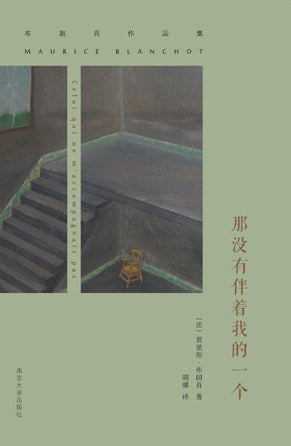1
/
of
1
The one that didn't accompany me
The one that didn't accompany me
[French] Maurice Blanchot Hu Die 译
Regular price
$8.99 USD
Regular price
$6.99 USD
Sale price
$8.99 USD
Unit price
/
per
Low stock
Couldn't load pickup availability
About Book
About Book
Celui qui ne m'accompagnait pas
Unlike traditional novels, in "The One Who Didn't Accompany Me," plot is nonexistent, and space is minimized (it takes place in his room). This is Blanchot's whisper to himself, or more precisely, his subject is a strange "I." The novel's primary purpose is to negate the clamorous world and erase the "I." Blanchot wrote "The One Who Didn't Accompany Me" solely to make it a text, a piece of literature.The temporal reference of this novel is non-existent. Blanchot searches for "another time, an older, terribly old time." This non-existence of time leads to the repetition of writing, as well as the non-existence of the present and the "non-existence of this time."
So what happens? Did I really think of withdrawing, of wanting to unload my burden and entrust it to someone else? More precisely, I wanted to hide from the stranger, not disturb him, erase his footprints, so that what he accomplished could be completed exactly, so that it wouldn't be done for me, who always stood on the edge of the event, outside of it. It should have happened like a flash of lightning, a roar, a sacred thing, and all I could do was draw ever closer, grasp the uncertainty within, maintain it, and hold on to it without giving in. Was it before, in that small room like a sentry post where I lived and worked, where I had disappeared, but far from feeling free from myself, I felt an obligation to protect this disappearance, to maintain it, to perpetuate it, forever? Wasn't it there, in the deep sorrow of belonging to no one, that I was given the right to speak of myself in the third person?
Publication Date
Publication Date
2015-02-01
Publisher
Publisher
南京大学出版社
Imprint
Imprint
Nanjing University Press·Watchman
Pages
Pages
122
ISBN
ISBN
9787305146435
share

